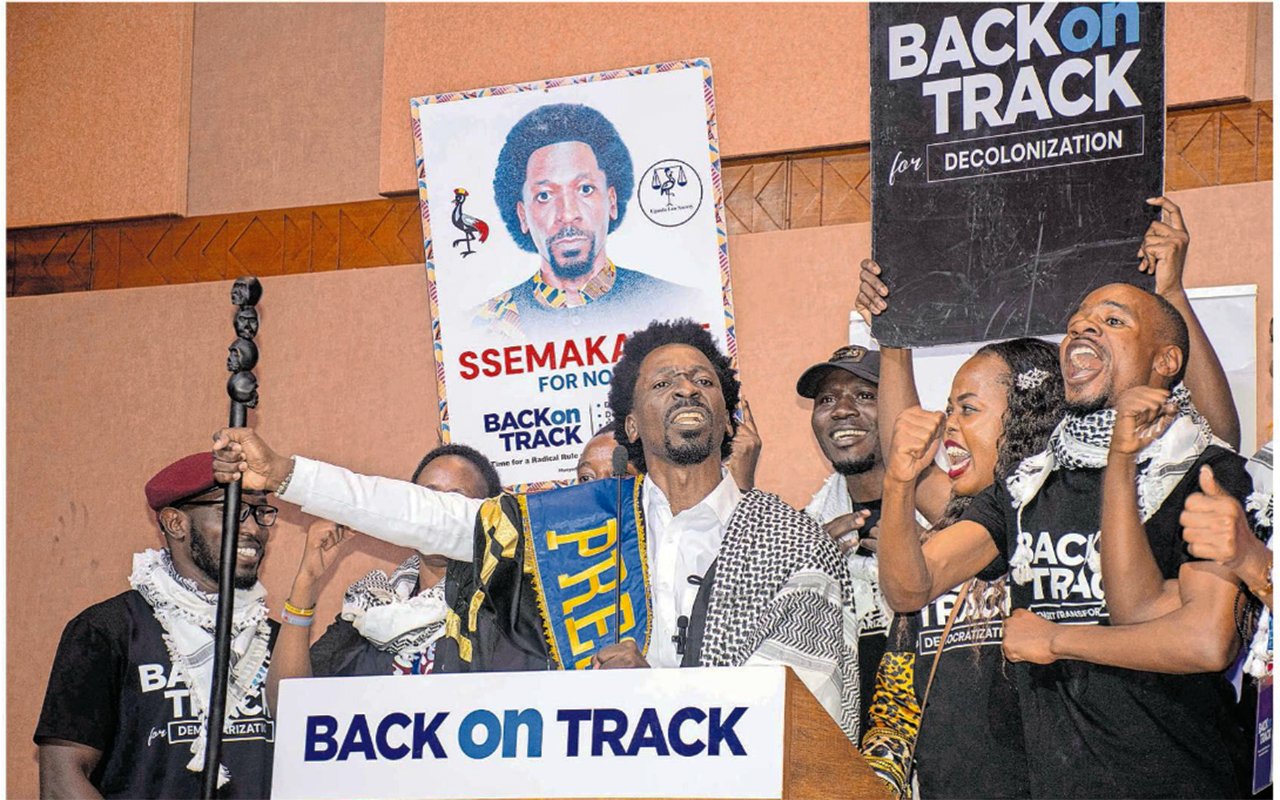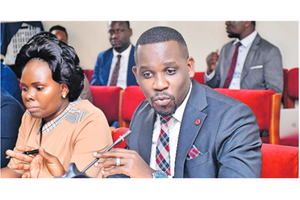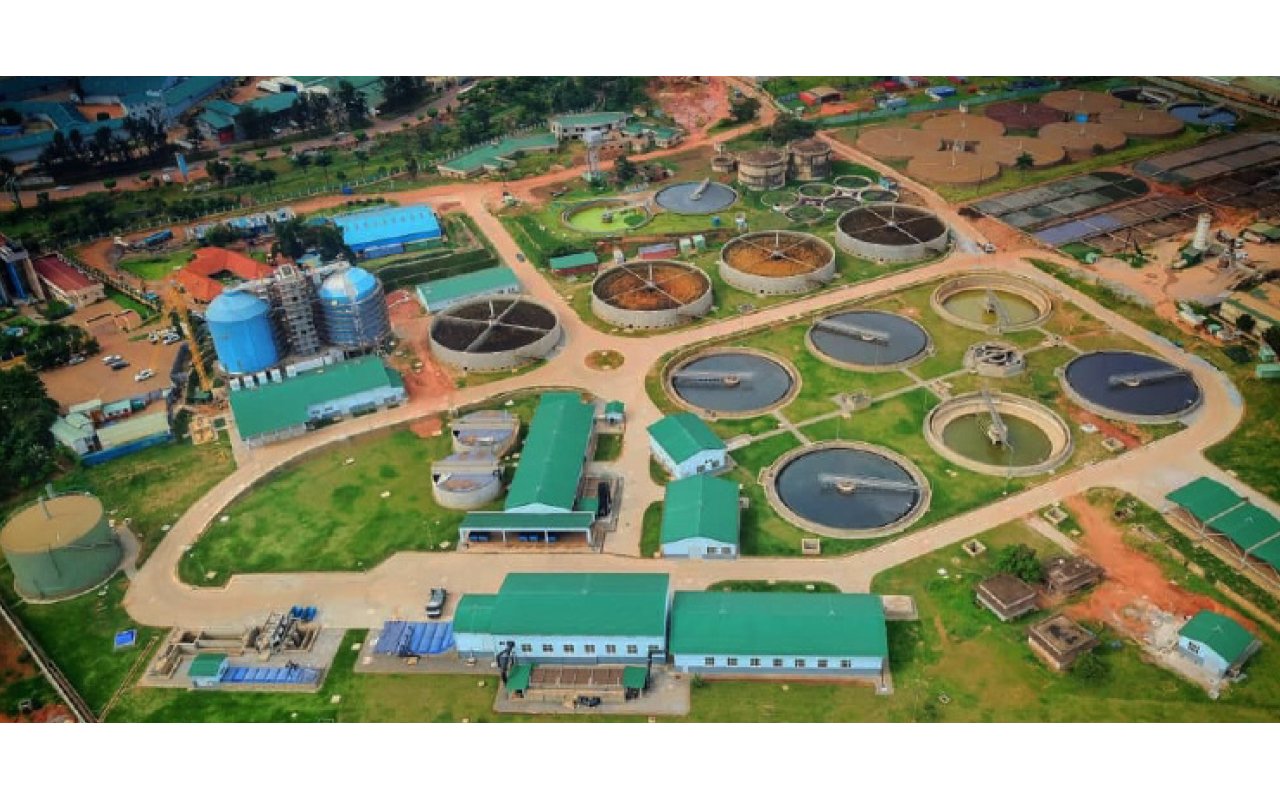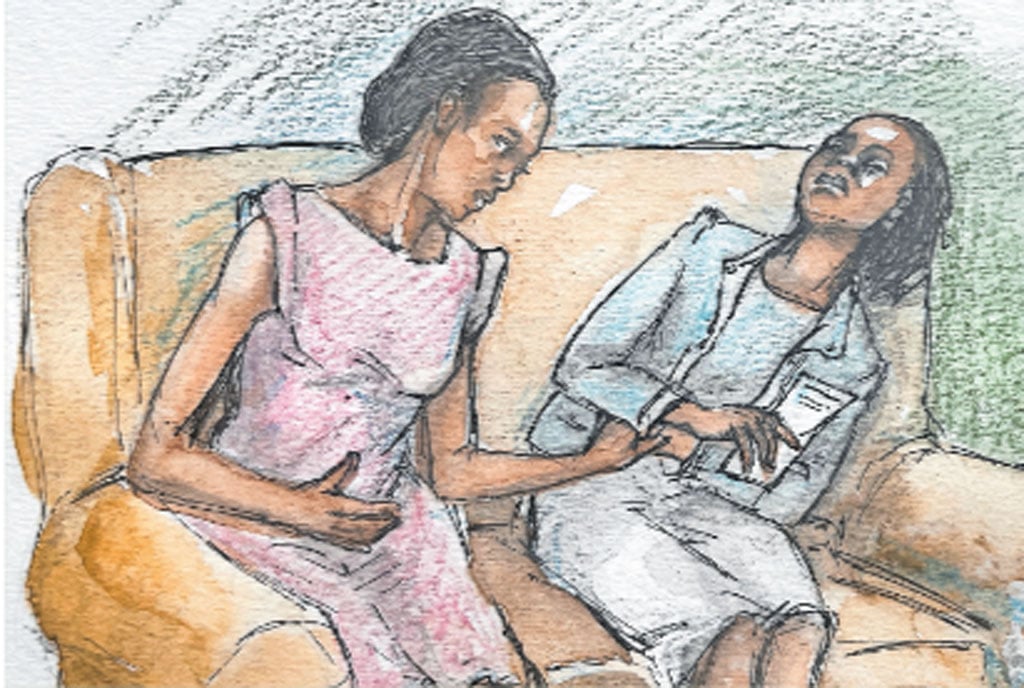
Opposition leader Robert Kyagulanyi alias Bobi Wine, being arrested by the Uganda Police's Field Force Unit personnel. Photo | File
The 2024 edition of the World Justice Project’s Rule of Law Index has ranked Uganda 126th out of 142 countries that were surveyed. The index also ranks Uganda 29th out of 34 countries in sub-Saharan Africa.
Dr Chris Baryomunsi, however, roundly dismissed the conclusions of the report.
The Information Communication Technology and National Guidance minister raised questions about the sample size and methodology employed in conducting the survey.
“One would, for instance, be interested in knowing how many Ugandans were interviewed in that assessment for them to come to that conclusion. You also need to disaggregate those Ugandans. Are they urban dwellers or urban and rural dwellers and in what proportions? You find they may pick a few voices from urban areas or they just review what you people report in the media and then make those conclusions,” he told Saturday Monitor.
Decline
Uganda’s decline, the index noted, is part of a story of the global decline in the rule of law that was experienced over the last one year in 57 percent out of the 142 countries that were part of the survey.
Twenty-one out of 34 countries in sub-Saharan Africa were among those whose rating declined. Fourteen out of those 21 countries had declined the year before.
Mr Livingston Ssewanyana, the Executive Director of the Foundation for Human Rights Initiative (FHRI), described the findings as a fair representation of what is transpiring on the ground.
“The decline can be attributed to the emerging culture of impunity, corruption, and limited access to justice, Mr Ssewanyana said.
Dr Baryomunsi, however, disagrees, saying the findings do not reflect the situation pertaining in Uganda.
“What do you find on the ground in Uganda? Do you find a deterioration in the rule of law for instance? My answer is ‘No. It is not there’,” Dr Baryomunsi stressed.
Neighbours
Uganda’s performance pales significantly compared to the performances of its neighbours in the East African region. It is, for example, 86 countries behind neighbours Rwanda who are ranked 40th out of the 142 countries.
Namibia, which is ranked number 44 in the global rankings and Mauritius ranked 46, are the other sterling performers from sub-Saharan Africa. Regional neighbours like Tanzania come in at 96th and Kenya comes in at 102nd out of the 142 countries.
According to the index of the global rule of law, recession has affected 77 percent of the countries since 2016. Uganda is among those that is said to have been affected.
“Globally, the declines were largely driven by authoritarian trends. Between 2016 and 2024, the Index factor measuring Fundamental Rights fell in 81 percent of countries, including Uganda,” the index indicates.

A man votes in Uganda during the 2021 elections. The government is contemplating introducing legislation that will make it mandatory for the Electoral Commission to use technology in the management of elections starting with the 2026 polls. PHOTO/FILE
Areas of assessment
The performance of countries is assessed based on seven thematic areas, including constraints on government powers; corruption; government; fundamental rights; order and security; regulatory enforcement, civil justice; and criminal justice.
In the area of constraints on government powers, the index measures the extent to which those who govern are bound by law. It focuses on the constitutional and institutional means by which the powers of the government and its officials and agents are limited and held accountable. That includes the extent to which civil society and institutions like the media can check the government’s powers.
In the area of corruption, the performance of countries is assessed based on the existence or lack of corruption, bribery, improper influence by public or private interests and misappropriation of public funds.
“These three forms of corruption are examined with respect to government officers in the executive branch, the judiciary, the military, police, and the legislature,” the index reads in part.
Performance in the area of openness of government is assessed based on the extent to which the government shares information, empowers people with the tools to hold the government accountable and how it fosters the citizenry’s participation in public policy deliberations.
“This factor measures whether basic laws and information on legal rights are publicised and evaluates the quality of information published by the government,” the index reads in part.
Performance in the areas of rights examines whether the country recognises and has a system of positive laws that respect core human rights as defined under the United Nations Universal Declaration of Human Rights.
Performance in the areas of security is based on how well the country does in ensuring the security of persons and property.
“Security is one of the defining aspects of any rule of law society and is a fundamental function of the state. It is also a precondition for the realisation of the rights and freedoms that the rule of law seeks to advance,” the report says.
Regulatory enforcement is measured on the basis of how fairly or effectively legal and administrative regulations are either implemented or enforced. The assessment, however, does not take into consideration the activities that the government opts to regulate or how appropriate the regulation is.
Performance in the area of rule of law is assessed based on the extent to which the citizenry can peacefully and effectively resolve grievances through the civil justice system. Some of the parameters used in the assessment include accessibility and affordability of the civil justice system. Others include whether the system is free of corruption, influence peddling and unreasonable delays.
Lastly, countries are assessed based on how effective their criminal justice system is in causing redress and taking action against individuals for offences committed against society. The assessment takes the police, lawyers, prosecutors, judges and prisons officers into consideration.
Mr Ssewanyana, however, points out that the survey should have taken innovations made by the judiciary into consideration “such as plea bargain, alternative dispute resolution, and government’s efforts at poverty alleviation”.
Uganda’s performance
According to the report, Uganda was ranked 114th out of 142 countries in the area of constraints on government powers. It also came in position 24 out of 34 countries in sub-Saharan Africa.
The ranking of the area of corruption stood at 134th out of 142 countries and 31st out of 34 countries in sub-Saharan Africa.
In the area of openness of government, Uganda was ranked 113rd out of 142 countries and 18 out of 34 countries in sub-Saharan Africa. The ranking signifies a drop by one position from the last ranking.
The global ranking in the area of human rights was 128th out of 142 countries and 31st out of 34 countries in the region. This was one position better at the global level, but one position lower than the last ranking at regional level.
Uganda was ranked 127th out of 142 countries in the world in the area of security, but came in at number 25 out of 34 countries in the region.
In the area of enforcement of regulations, the country was ranked 112th out of 142 countries and 21st out of 34 countries in the region, but this signified a drop by one position in its performance on the global level. The ranking in the area of civil justice remained at 115 out of 142 and 24 out of 34 countries in the region, the same as what had been registered in the previous ranking.
Uganda ranked 115 out of 142 countries in the area of criminal justice, which was 4 positions better than it did in the previous ranking. The ranking at regional level was 24th out of 34 countries.
Dr Baryomunsi insisted that the findings were based on wrong methodologies.
“Their assessments are just merely an academic exercise, but based on very weak methodologies and then their results do not reflect what is on the ground,” he told Saturday Monitor on phone yesterday morning.






